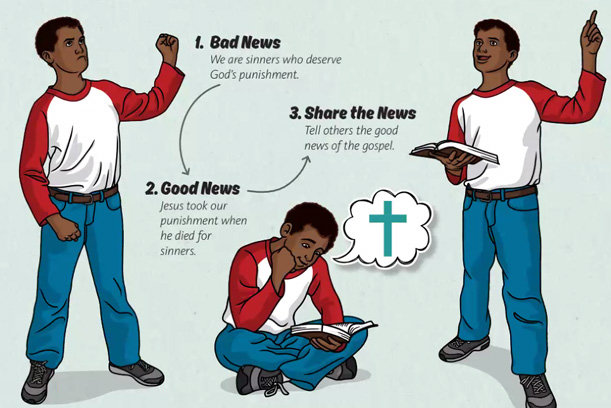Go Fish Study: The one That Got Away
Go Fish Study: Muddy Water
Go Fish Study: Fishing Buddies
Go Fish Study: Fish Guts
Corruption: Sin Enters the World
The first sin entered the world when Adam and Eve believed the serpent and disobeyed God. Because of this first sin, all people are born sinners.
Stewards of God’s Creation
God created the heavens, the earth, and all that is in them. God created man to rule over his creation. We have a responsibility to take care of God’s creation and use it wisely.
The Age of the Earth
The Bible tells us the earth is only about 6,000 years old, not millions of years!
God Made Dinosaurs
Students will hear from the book of Job about Behemoth and how its description sounds very much like a dinosaur. God created dinosaurs on day six of creation week.
Creation: Adam and Eve
Genesis 2 tells about the creation of Adam and Eve. The biblical account of the creation of man contrasts sharply with the evolutionary view. God’s creation of Adam and Eve demonstrates that God’s design for marriage is one man and one woman for life.
Creation: Animals and Man
On days five and six of creation week, God created flying animals, sea creatures, land animals, and man. God created the animals to reproduce according to their kinds. Man is different from animals because we are created in God’s image. This means that, unlike the animals, God has provided a way for us to be forgiven and redeemed for eternity through Jesus Christ.
Creation: Days and Kinds
The context of the Hebrew word yom in Genesis 1 confirms that the days of creation were normal 24-hour days. God created specific types of plants on day three to reproduce according to their kind.
God Creates the Universe
The account of God’s creation—by the word of his mouth—reveals that he is the all-powerful—omnipotent—Creator. The evolution model of creation conflicts dramatically with the biblical creation account of Genesis 1. We must rely on God’s Word alone for the truth.
The Seven C’s of History
The Bible provides a complete history of the universe. The Seven C’s of History reveal the major historical events that are foundational to the Bible’s important messages.
The Gospel Is Good News
Salvation from sin is the main message of the Bible. It is because of the death and resurrection of Jesus Christ that we are able to come to God as pure and holy. Our sins are forgiven in Christ if we repent and trust in Jesus as Savior.
Don’t Change God’s Word
The Bible is the only inspired revelation from God. It must be the absolute authority. Many have tried and will continue to try to change God’s Word and teach lies. We must beware of false teachers and false religions.
God’s Word Is Complete
We know the New Testament is God’s Word and that it is true. We realize that the Bible—both the Old and New Testaments—is the complete, written Word of God.
God Preserves His Word
God has protected his Word for thousands of years. It will endure forever through all generations.
God’s Word Guides Us
The Bible is God’s Word. We study it by observing the text and asking Who? What? When? Where? Why? The Bible is good for doctrine—teaching God’s truths; Reproof—showing us our sin; Correction—learning to turn from sin and do what is right; and Instruction in righteousness—learning how to please God.
The Trinity
The Trinity refers to one God in three Persons—God the Father, God the Son, and God the Holy Spirit. All three Persons of the Trinity were present at creation.


